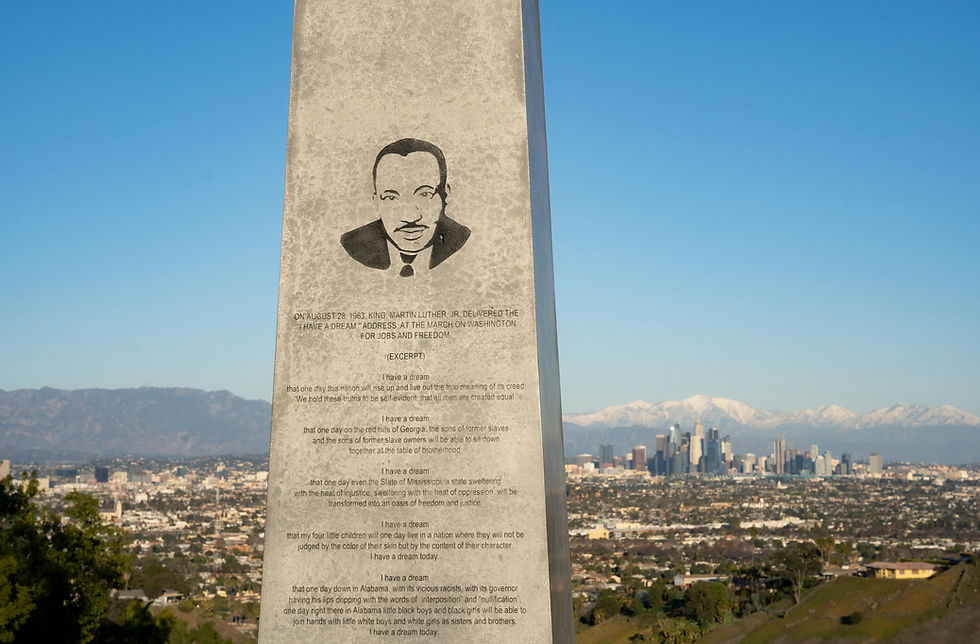What is the Black Revolution?
- Daphne, FNDR of Tough Convos

- Jan 26, 2023
- 4 min read
Updated: Feb 11, 2024

The Black Revolution was a countercultural movement in the United States in the 1960s and 1970s aimed at dismantling white supremacy and Black oppression. A key proponent of this revolution, Malcolm X, spoke deeply on the reality of the Black empowerment movement of the time and encouraged both Black and white folks to reframe the way they looked at the Black Revolution as part of a worldwide struggle.
Table of Contents:
His strategy focused on gaining human rights globally as there is power in numbers, as opposed to civil rights only in America. He insisted that Black folks worldwide needed to unite against the common enemy — white supremacy and its version of democracy — while recognizing that revolutions in history were typically violent, as a revolution is always about land and the landless fighting the landlords, because land ensures independence.
Birth of the Black Revolution

The Black Revolution consisted of several movements that came out of this particularly hot era. The Black Power and pan-Africanism movements originated in the 1960s and were primarily about self-reliance and racial pride. While integration was an aspect of the Black Revolution, it was not considered the most crucial objective. Each movement had a different focus, but all had a unifying goal, which was countering centuries of oppression by gaining Black independence.
Leaders of this Civil Rights movement wanted autonomy in managing their own institutions, including schools, businesses and ordinances in Black neighbourhoods. Malcolm X challenged his Black brothers and sisters to think critically about their role in their own oppression and whether or not the Black Revolution could and should be nonviolent.
"He sent you to Germany you bleed, he sent you to the South Pacific to fight the Japanese you bled, you bleed for white people. But when it comes time for seeing your own churches being bombed and little Black girls murdered you haven't got no blood... How can you be nonviolent in Mississippi and justify it in Korea? If violence is wrong in America, violence is wrong abroad, if it's wrong to be violent to defend Black women, Black babies and Black men, then it's wrong for America to draft us and make us violent in defence of her."
How did the Black Revolution affect the Civil Rights movement?
Black Power movement vs the Civil Rights movement
On the surface, the Black Power and the Civil Rights movements seemed to be at odds with each other. The Civil Rights movement was built on the idea that racial barriers and discrimination could be broken down and Black and white citizens could assimilate. Leaders of the Black Power movement believed that racial assimilation was impossible because Black Americans would never earn the respect of whites. The goal of the Black Power movement was to help Black Americans thrive without being dependent on whites.

Black Power leaders, such as Stokely Carmichael, believed in a nonviolent approach but still praised Malcolm X’s vision. However, Carmichael also agreed with most of MLK’s message about racial equality and solidarity but felt some of the Civil Rights leader’s beliefs were naïve. The reality is, as with any group of individuals, they had different views on how to go about achieving the same aim.
Civil rights activists accused Malcolm X of harming the Civil Rights movement by reducing sympathy for the movement and encouraging separatism. Black Power scholar Peniel Joseph states that MLK spoke out against Malcolm X and other Black revolutionary leaders and pled to abandon violence for both moral and political reasons. Others argue that Black revolutionaries like Malcolm X should be largely credited for the success of the Civil Rights movement. They believe that peaceful civil rights leaders like MLK couldn’t have gained traction without the momentum of the more aggressive tactics employed by the Black Revolution.
The Black Revolution and Civil Rights movement were shaped by different philosophies, but they shared many aligning goals. Though various leaders may have criticized each other, the movements gradually merged and followers were encouraged to support both the Civil Rights movement and Black Power ideals. That's what happens when you recognize that you shared the same enemies who were responsible for fomenting the division in your own community.
Though the aims of the Black Revolution have yet to come to fruition, a Black renaissance of sorts has emerged over the last 3 years and we are on the cusp of great reform to our institutions and mindsets. With the help of tough conversations and DEI training in companies like yours, we are contributing to the empowerment of the Black community in Canada and the US.
Building inclusive companies is not just for the benefit of Black folks, but rather your entire team, the products you create and the world as a whole.
Contact us if you are ready to have a tough conversation about things you stand for, like anti-Black racism, and how to go all in to achieve them.




Comments